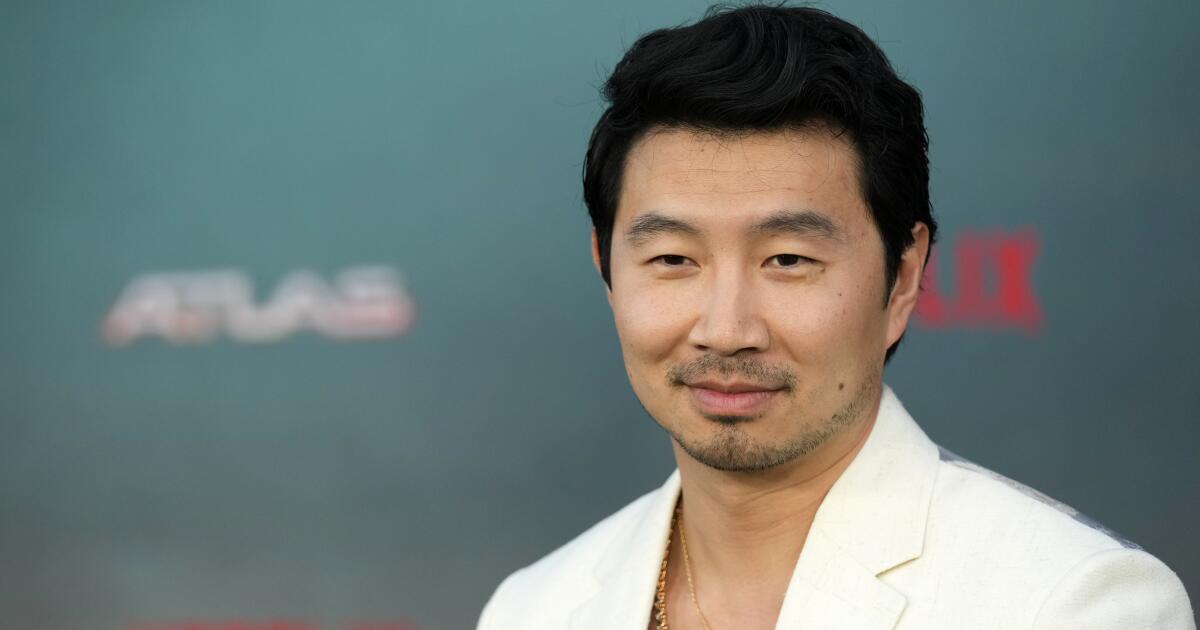Simu Liu is hustling to turn down the heat on a Canadian bubble tea company after criticism of its televised sales pitch to the Marvel superhero boiled over online.
During a recent guest appearance on CBC’s “Dragon’s Den” — a “Shark Tank”-style reality series — the “Shang-Chi and the Legend of the Ten Rings” star called out the Quebec-based brand Bobba for “cultural appropriation.”
Bobba owners Sebastien Fiset and Jess Frenette pitched a “transformed” bottled bubble tea that, with its “three simple ingredients” — including the brand’s signature “Popping Bobba” — was “not a ethnical [sic] product anymore.”
Raising concerns about Bobba’s model of “taking something that’s very distinctly Asian in its identity and ‘making it better,’” as well as its lack of Asian staff, Liu passed on the pitch. He added that he started his venture capital fund Markham Valley Ventures “primarily to uplift minority entrepreneurs.”
“Not only do I feel like this is not happening here, but that I would be uplifting a business that is profiting off of something that feels so dear to my cultural heritage,” he said during Thursday’s episode. “I want to be a part of bringing boba to the masses, but not like this.”
Meanwhile, his fellow “Dragons’ Den” investor Manjit Minhas called his comments “a little heavy.”
“There can be new takes on things. Not everything has to be traditional,” Minhas countered. The venture capitalist ultimately offered Fiset and Frenette $1 million for 18% of Bobba but days after the episode aired announced that, “After more reflection, due diligence and listening to many of your opinions, I will not be investing in Bobba Tea.”
Footage of the segment has since circulated on social media, with some comparing the incident to the “spa water” controversy, in which a TikTok influencer seemingly lay claim to a wellness drink Latino users swiftly identified as agua fresca. Others enraged by Bobba’s comments targeted the founders online — a response Liu has since condemned.
“I just want to say that full stop, it’s never OK to make threats, it’s never OK to bully and harass online,” he said in a Saturday TikTok video. “I don’t mean that the business owners don’t deserve valid criticism, and I don’t believe that you should not be vocal about your disagreement, but I think we can all agree, common sense, there’s a line.”
And dogpiling and death threats undoubtedly cross it, the “Kim’s Convenience” alum said, adding that, as someone who’s been “on the other side” of social media ire, it creates “undue mental stress and trauma” no one should have to endure.
Liu called the episode an “unfavorable edit,” adding that, “in the break room, it was all ears.” He also said he believed the Bobba entrepreneurs pitched their business “in good faith” and that, given English is not their first language, there was greater potential for miscommunication.
Bobba’s founders echoed his latter point in their apology, on Sunday clarifying on Instagram that their controversial claim that “you’re never quite sure about its contents” pertained not to the “traditional bubble tea formula found in specialized shops” but to “other ready-to-drink products like ours found in big box stores.”
“While it was never our intention to cause harm or disrespect the community that created and popularized this beloved drink, we take full responsibility for the impact of our actions,” they wrote, adding that Liu “raised very valid points regarding the cultural appropriation and we welcome this learning opportunity.”
The statement continued: “It is clear to us that we should have called upon the expertise of our Taiwanese partners to shape the ways in which we give credit to the cultural roots of bubble tea and ensure cultural integrity by properly acknowledging its origins in Taiwanese culture. We will re-evaluate our branding, packaging, and marketing strategies to ensure that they reflect a respectful and accurate representation of our Taiwanese partnership and bubble tea’s cultural roots.”

